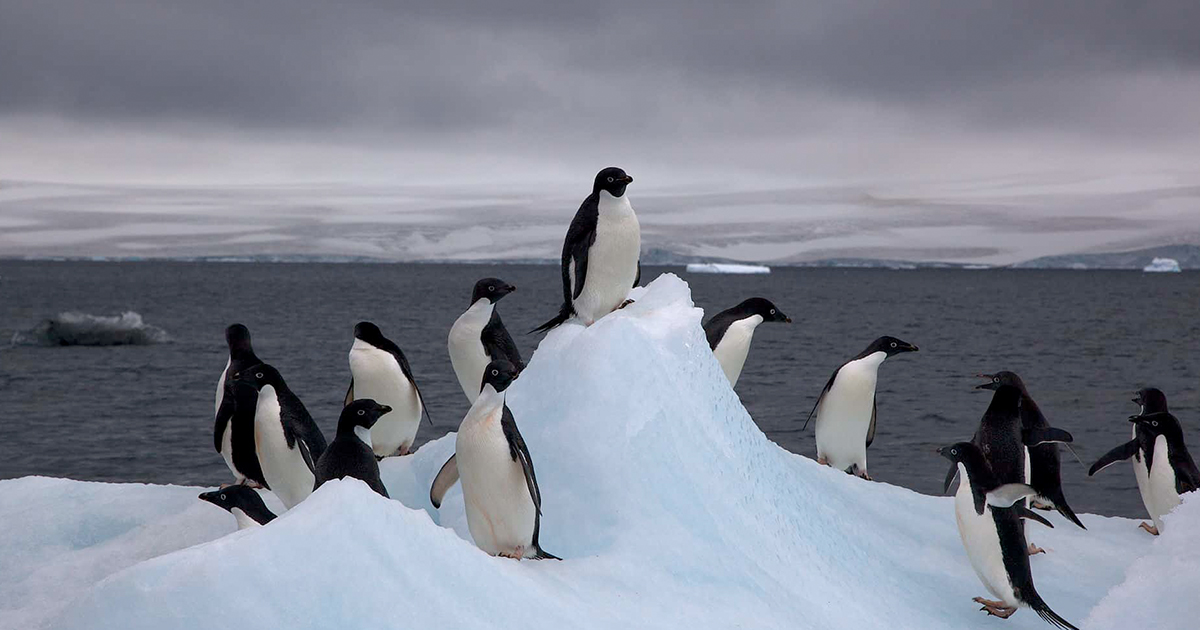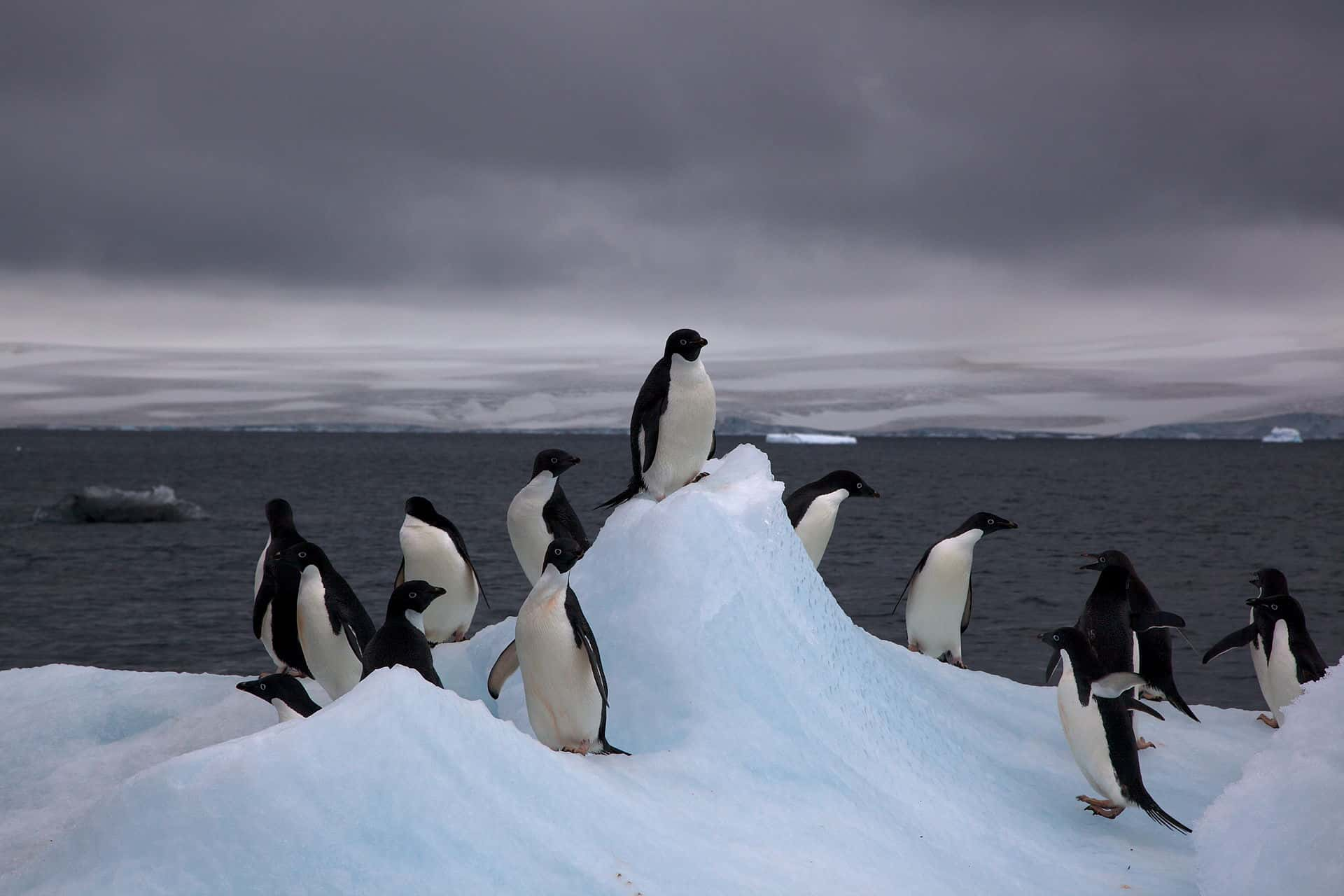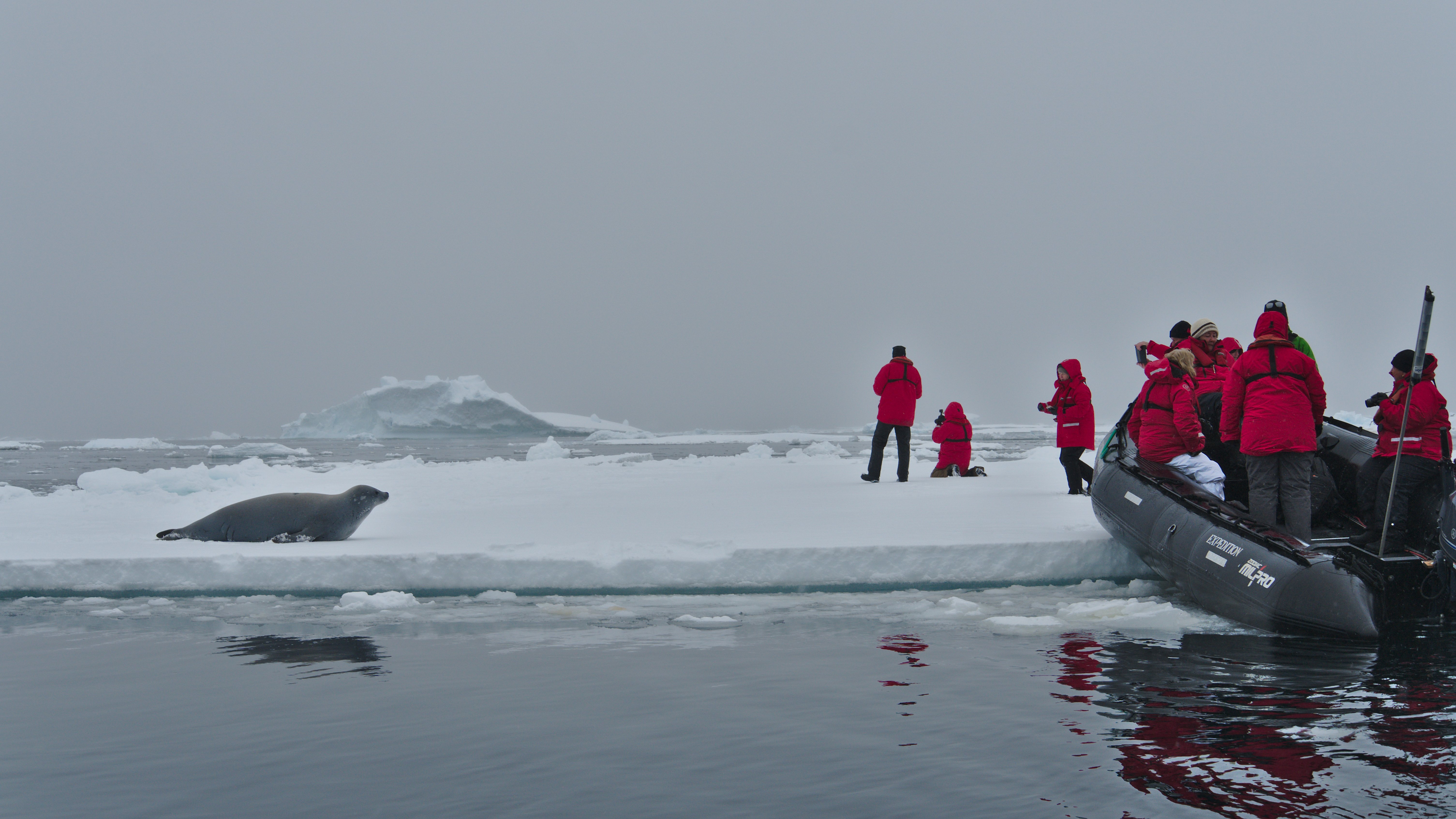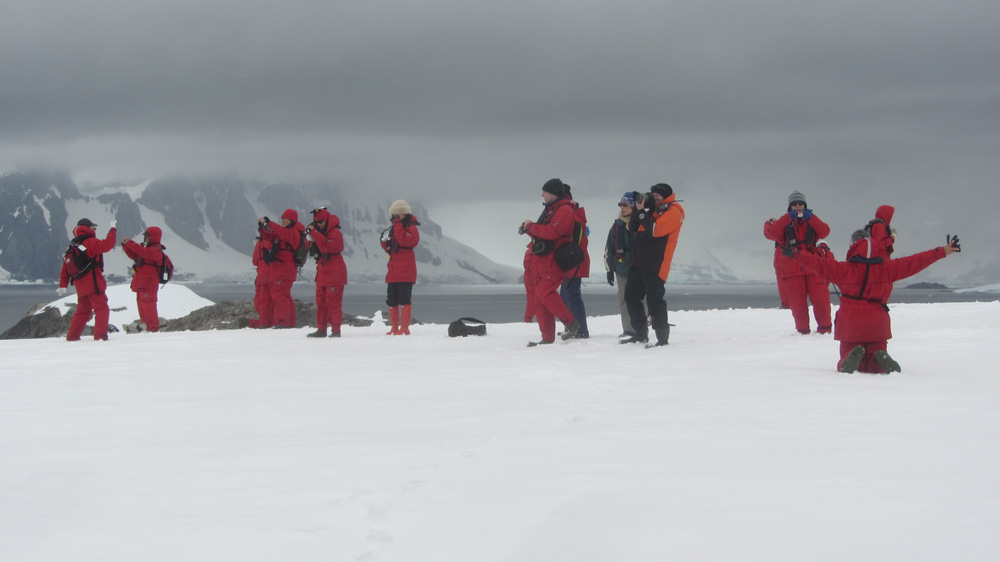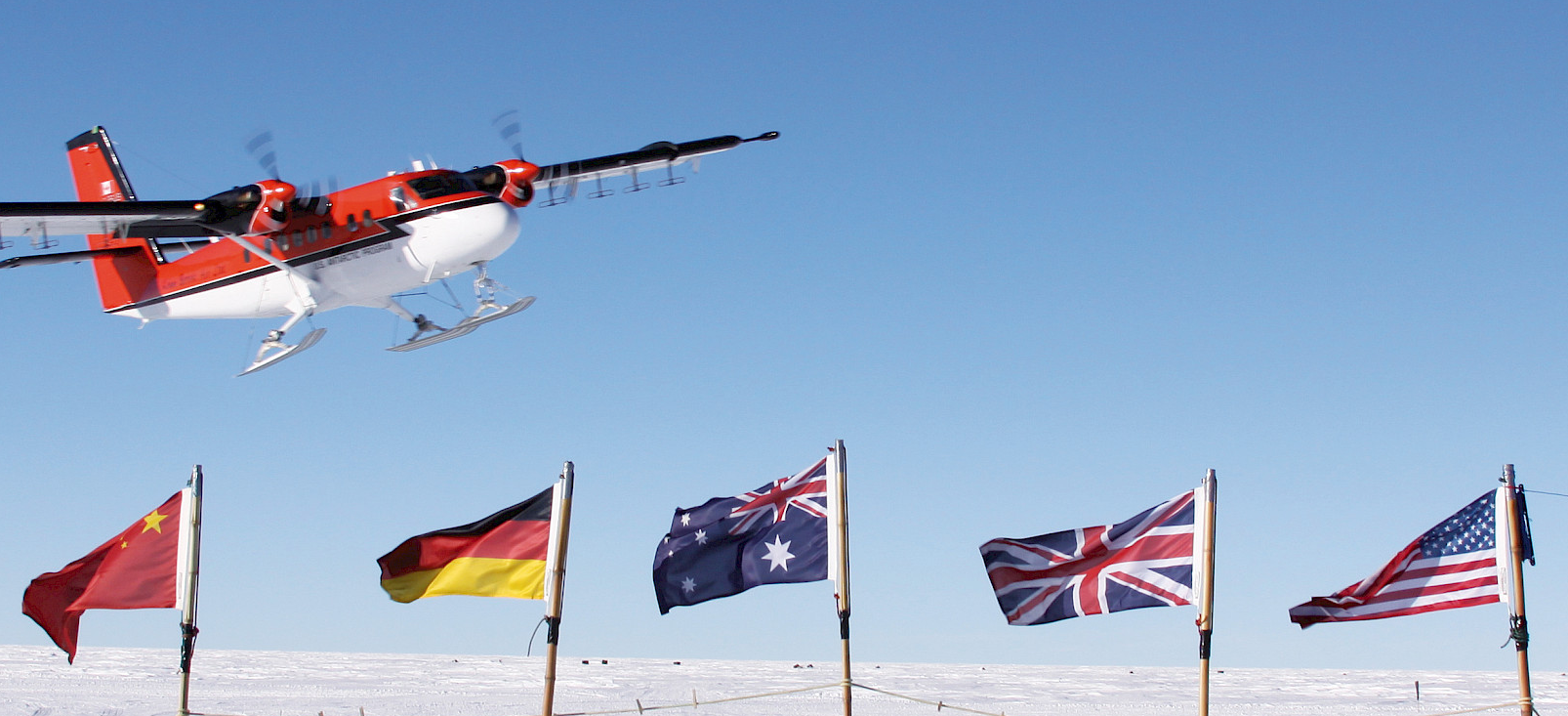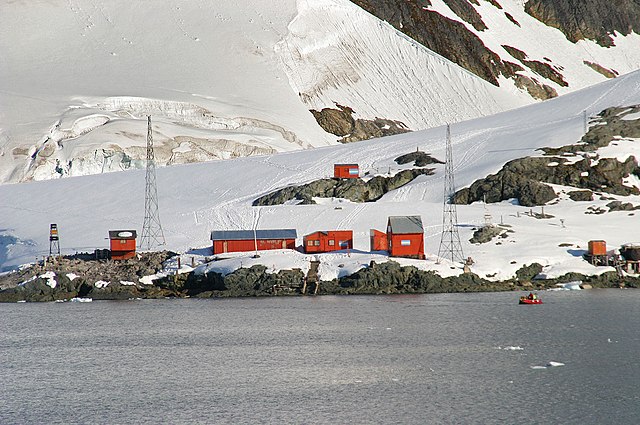Working in Antarctica: You can work there, but you can't live there!
 NASA Goddard Space Flight Center, Wikimedia Commons
NASA Goddard Space Flight Center, Wikimedia Commons
Antarctica, the southernmost continent, is a land of extremes and mysteries. While it might not be the first place that comes to mind when considering career opportunities, working in Antarctica offers unique experiences and challenges.
This article delves into the various aspects of working in this icy expanse, from job opportunities to the living conditions and governance of the continent.
Antarctica
Antarctica, the southernmost continent on Earth, is a vast, icy expanse that is both majestic and formidable. It is the highest, driest, windiest and coldest continent in the world. It is also the fifth-largest continent, and almost entirely covered by a massive ice sheet, which holds about 70% of the world's fresh water.
This frozen desert, characterized by its stark white landscape, piercing blue icebergs, and towering snow-clad mountains, is also home to an incredible array of wildlife. The continent's coastal regions teem with life, hosting diverse species such as penguins, seals, and whales.
These animals have adapted remarkably to the harsh, frigid environment, thriving in a land where temperatures can plummet far below freezing. But, what about humans?
Humans in Antarctica
Antarctica experiences some of the harshest conditions on Earth, with temperatures dropping below -60 degrees Celsius (-76 degrees Fahrenheit) in winter and only slightly milder conditions in summer.
The environment is dry and inhospitable, lacking basic resources for human survival such as readily available food and water sources.
Furthermore, the Antarctic Treaty, signed by multiple nations, prohibits armed activity, mineral mining, nuclear blasts, and nuclear waste disposal, and restricts human activity primarily to scientific research.
Types of Jobs in Antarctica
Jobs in Antarctica are primarily research and support-based, focused on scientific studies and maintaining research stations.
These include roles in scientific research, engineering, IT, medical services, logistics, cooking, and even hairstyling.
Organizations like the United States Antarctic Program (USAP) and various research institutions frequently post job openings.
Types of Jobs in Antarctica
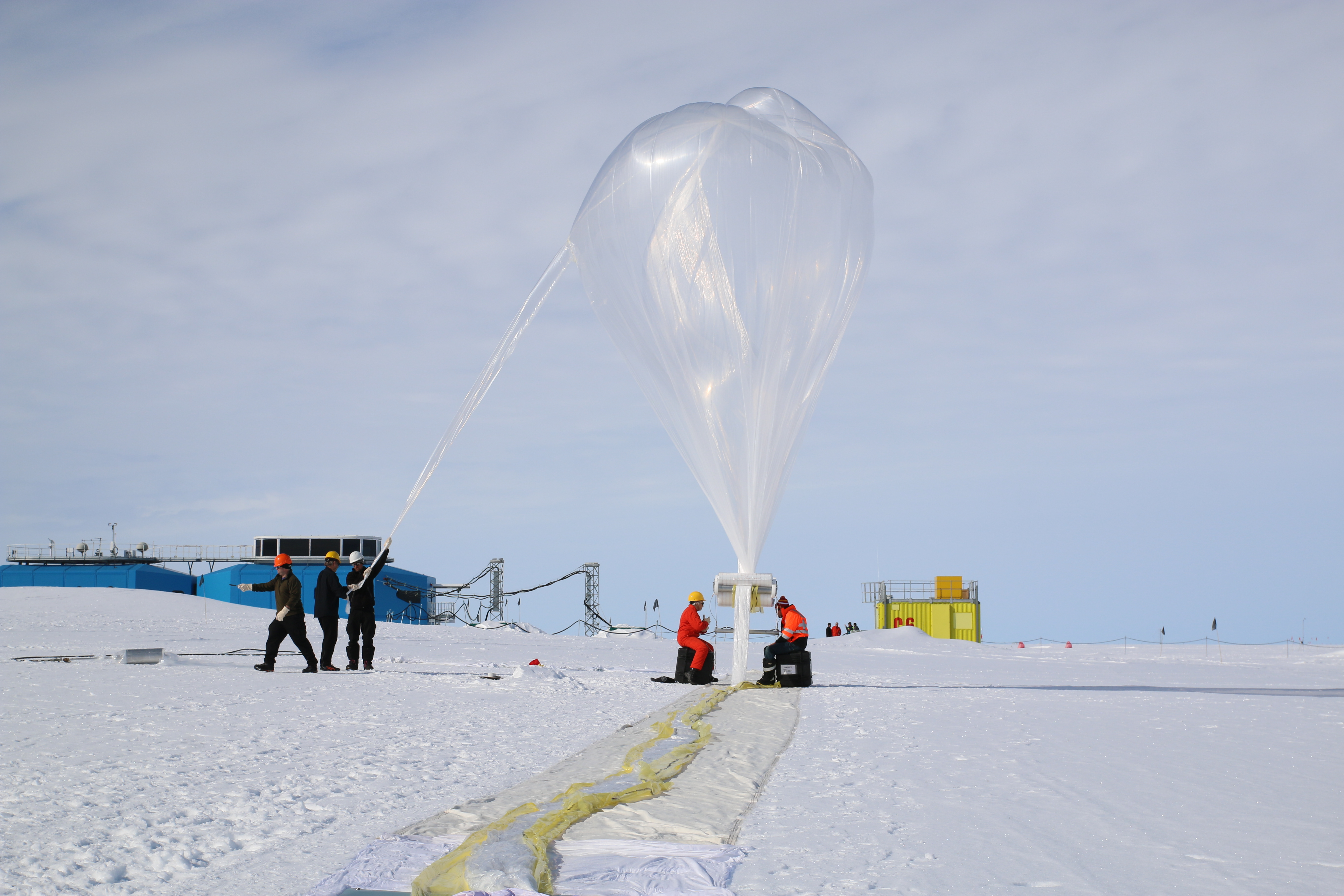 NASA Goddard Space Flight Center, Wikimedia Commons
NASA Goddard Space Flight Center, Wikimedia Commons
Scientific positions in Antarctica include:
- Glaciologists
- Geologists
- Chemists - studying snow, ice, freshwater etc.
- Atmospheric physicists
- Meteorologists
- Oceanologists
- Biologists - terrestrial or marine
Support positions include:
- Cook
- Electrician
- Carpenter
- Boat handler
- Mechanic
- Plumber
- Radio operator
- Doctor
- Diving officer
- Fire fighters
- Engineers
- Crane Operator
Pay Rates in Antarctica
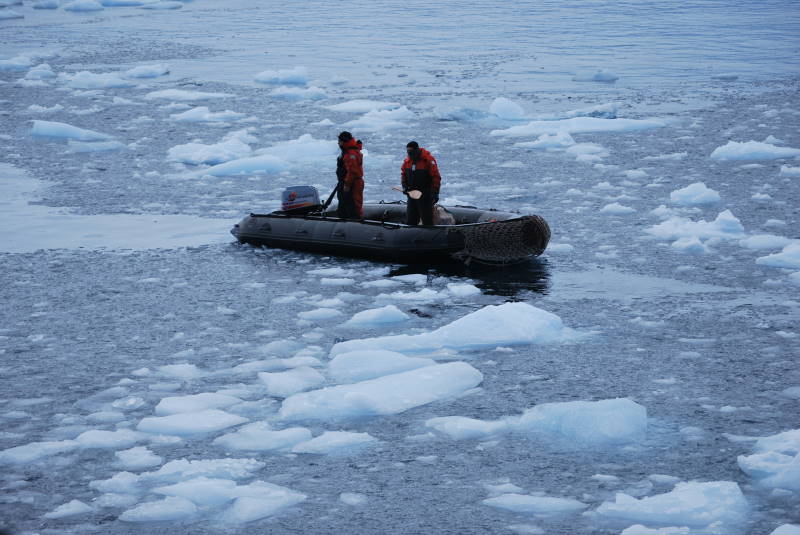 Diego Tirira, Wikimedia Commons
Diego Tirira, Wikimedia Commons
Salaries for Antarctic jobs vary depending on the role and employer. Typically, employees working in Antarctica under a National Antarctic Programme, on supply ships, or through contract work receive compensation similar to what they would earn for the same job in their home country.
While there might be a modest additional bonus, the notion of salaries being doubled or tripled is unrealistic.
For example, support staff can earn between $1,700 and $2,400 per month, while skilled professionals like doctors or engineers can earn much more.
Additionally, most employers provide room and board, which offsets living costs significantly.
Disadvantages of Working in Antarctica
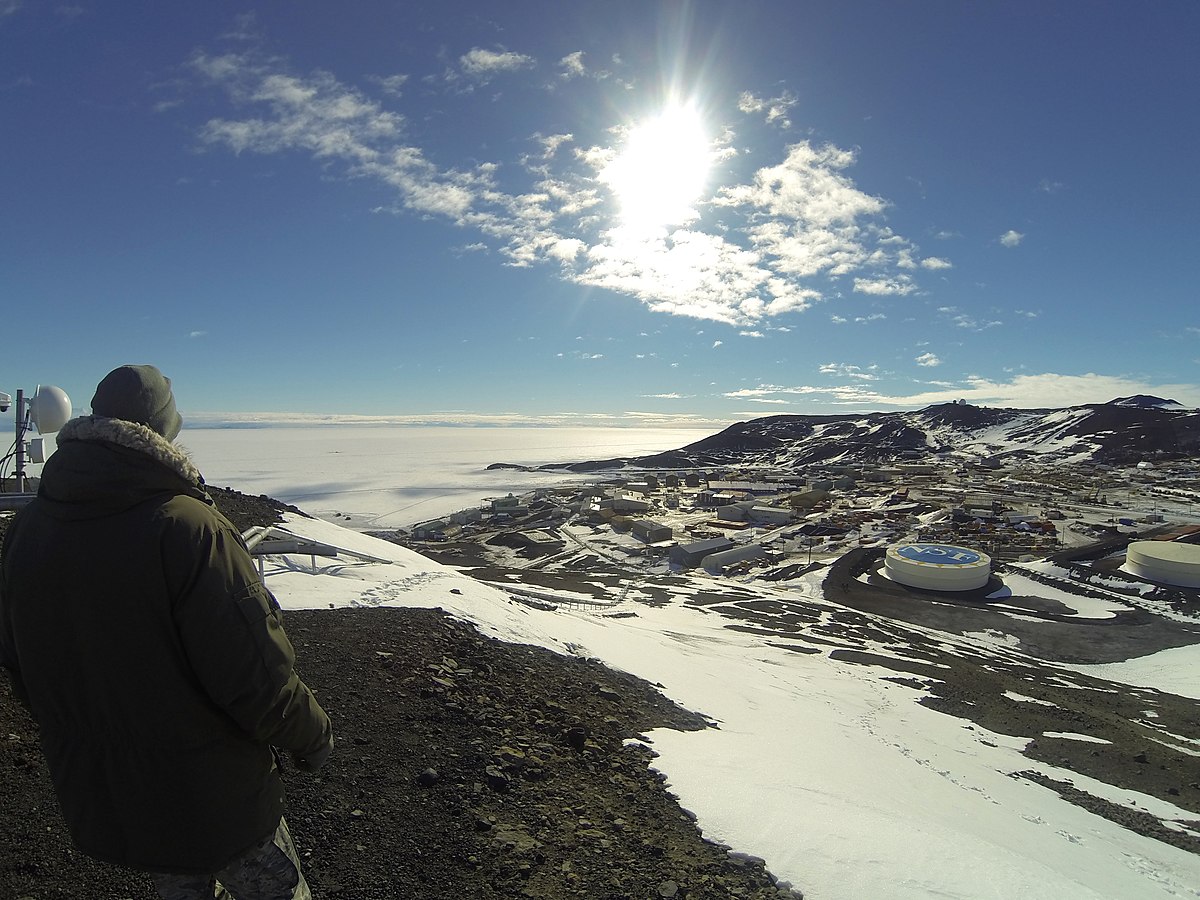 The National Guard, Wikimedia Commons
The National Guard, Wikimedia Commons
The extreme cold and remote location pose significant challenges. Winter temperatures can drop below -60 degrees Celsius (-76 degrees Fahrenheit), coupled with strong winds and blizzards.
The isolation can also impact mental health, and limited access to fresh food can affect physical well-being.
The Climate in Antarctica
Antarctica is the coldest continent on Earth. During the summer months (December to February), temperatures along the coast can rise to 0-8 degrees Celsius (32-46 degrees Fahrenheit), but the interior remains below freezing.
In winter (June to August), temperatures can plunge precipitously, especially in the interior.
Residency and Governance
Antarctica is unique in that no one country governs it.
The Antarctic Treaty System, signed by 54 countries, regulates international relations concerning Antarctica.
Permanent residency is not an option, and no one can “move” to Antarctica in the traditional sense. Most people stay on a seasonal basis, typically a few months to a year.
Travel to Antarctica
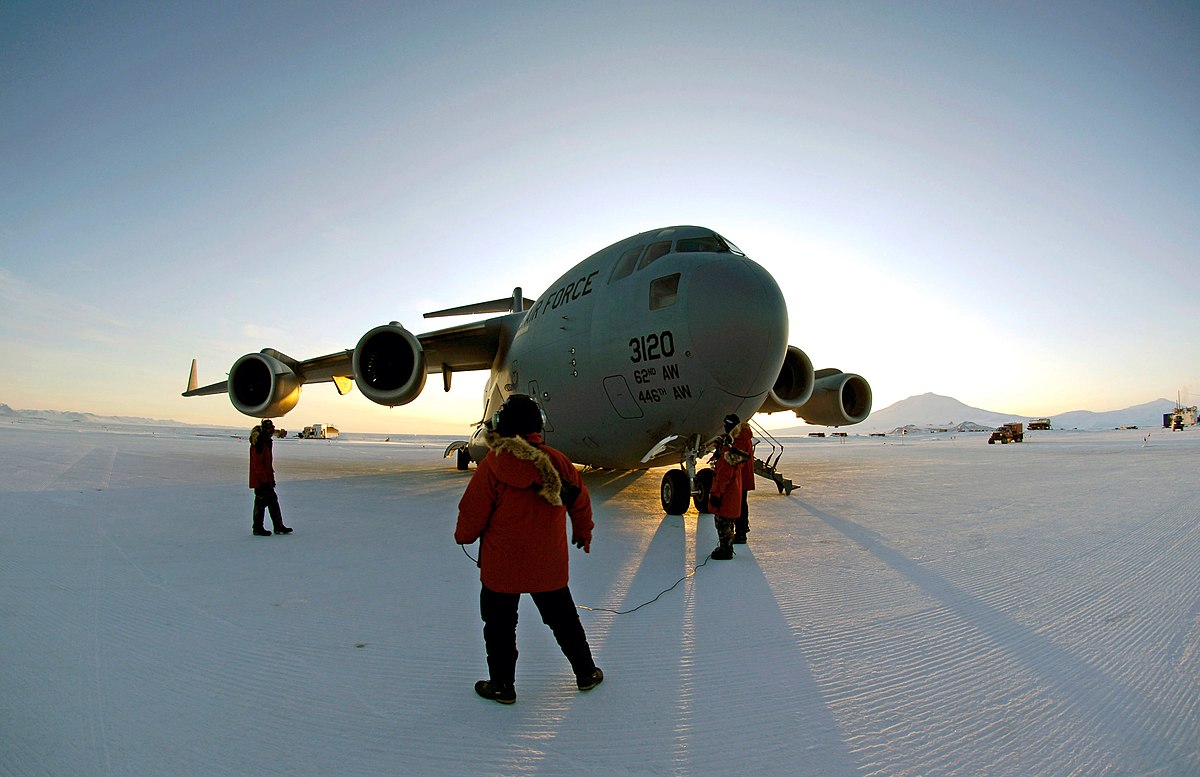 U.S. Air Force, Wikimedia Commons
U.S. Air Force, Wikimedia Commons
Traveling to Antarctica typically involves a flight to a gateway city such as Christchurch, New Zealand, or Punta Arenas, Chile, followed by an army or research flight to the continent.
The travel time from the USA to Antarctica can vary, but it generally takes at least a day or two, considering the multiple stages of the journey.
Population and Living Areas
Antarctica's population varies seasonally, from about 1,000 people in winter to about 5,000 in the summer, working across various research stations.
The McMurdo Station, operated by the US, is one of the largest, accommodating up to 1,200 residents.
Final Thoughts
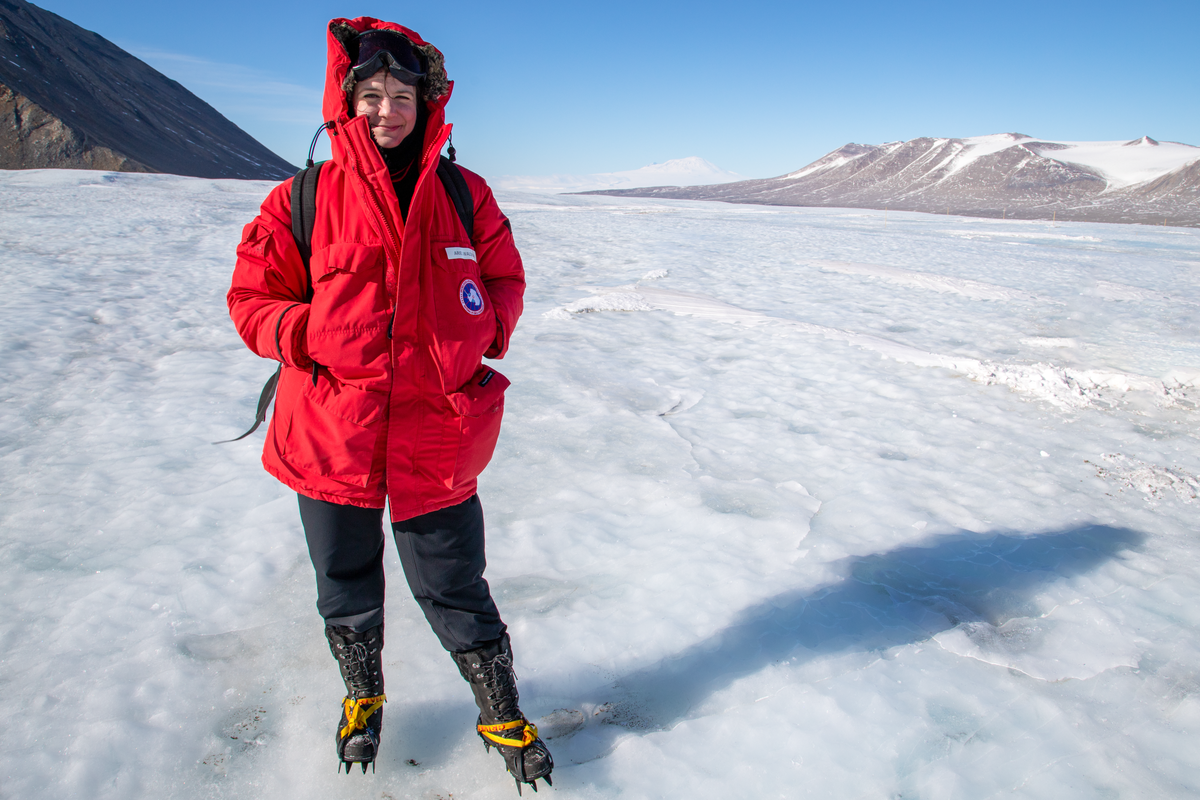 Ariel Waldman, Wikimedia Commons
Ariel Waldman, Wikimedia Commons
Working in Antarctica offers a rare opportunity to be part of critical scientific research while experiencing one of the most remote and pristine places on Earth.
It requires resilience, adaptability, and a spirit of adventure. Despite the challenges, the experience can be immensely rewarding, both personally and professionally.

